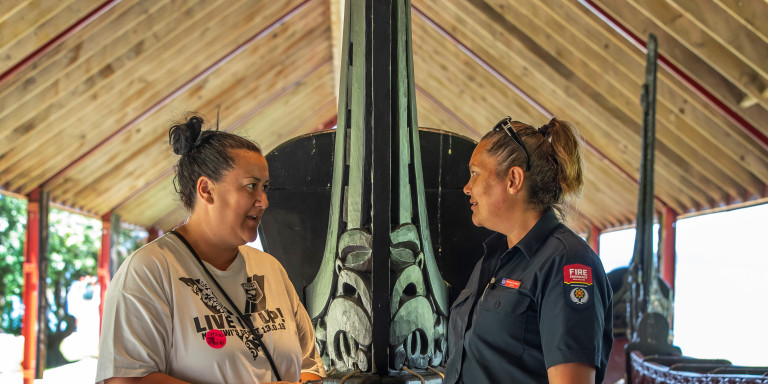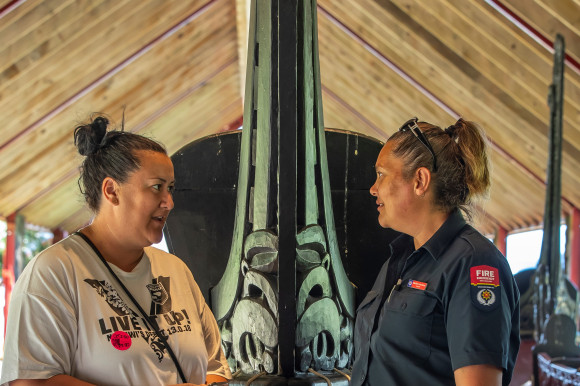Local Advisory Committees
Reflecting the diversity of community voices
E koekoe te tūī, e ketekete te kākā, e kūkū te kererū
This historic whakataukī reminds us that it takes a multitude of voices to create harmony.
Use this space to note any additional information about your escape plan, i.e. who will assist
Smoke is poisonous and more deadly than flames.
If you breathe smoke for more than a few breaths it can kill you.
A house fire can kill you in less than three minutes.
Don't spend time trying to save possessions.
A closed door buys you time.
It slows down the spread of fire, giving you more time to get to safety.
People have died by going back into a fire.
Don't leave the meeting place to go back inside for any reason.


Reflecting the diversity of community voices
E koekoe te tūī, e ketekete te kākā, e kūkū te kererū
This historic whakataukī reminds us that it takes a multitude of voices to create harmony.
Ngā Komiti Tohutohu Ā-Rohe Local Advisory Committees (LACs) bring a strong community voice to the work of Fire and Emergency New Zealand, so that we can better support communities to prepare for, respond to, and recover well from emergencies when they happen.
They are established by the Board under the Fire and Emergency New Zealand Act 2017, to provide advice from a local perspective, on community values, needs, opportunities, issues and risks. Their advice informs and influences our planning and strategy, and their engagements strengthen our relationships with our communities.
LACs help to shape the future of Fire and Emergency’s support for communities by enabling us to better understand what matters – now and in the future.
We’re on a journey towards having a committee established in every local area across the country, with a total of 16 LACs. We’re looking to stand up LACs in Wellington and Christchurch in the first half of 2025.
If you would like to register your interest in becoming a member for one of our LACs, or would like further information, email lacs@fireandemergency.nz or fill out the online Expression of Interest form.
Local Advisory Committees provide independent advice to Fire and Emergency about what their communities value, their needs and the risks they face.
Appointments to all the Local Advisory Committee members including Chairs and Deputy Chairs are made by the FENZ Board. For out more about how appointments are made.
Find out what each Local Advisory Committee is currently undertaking and where they have made a difference.
Meetings take place each quarter, and are attended by the committee itself, representatives from the national Local Advisory Committee Team, and local Fire and Emergency leaders.
Get in touch with the Local Advisory Committee in your community.